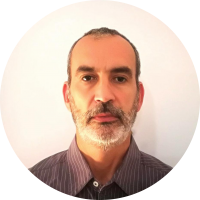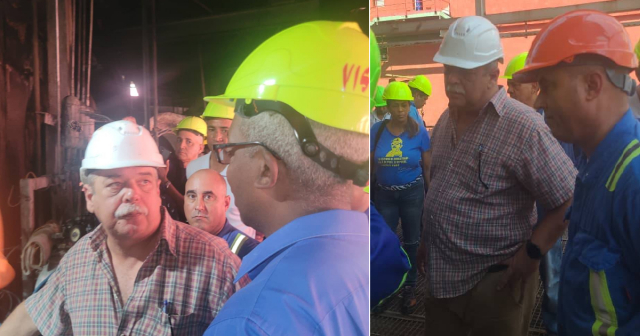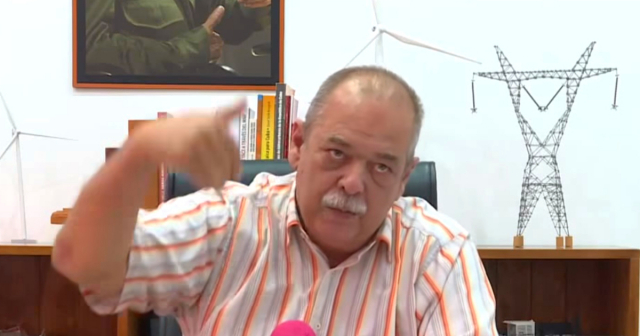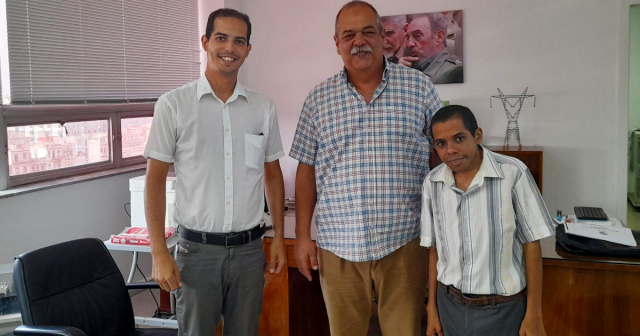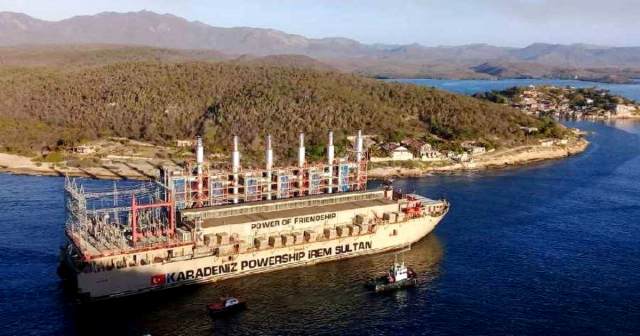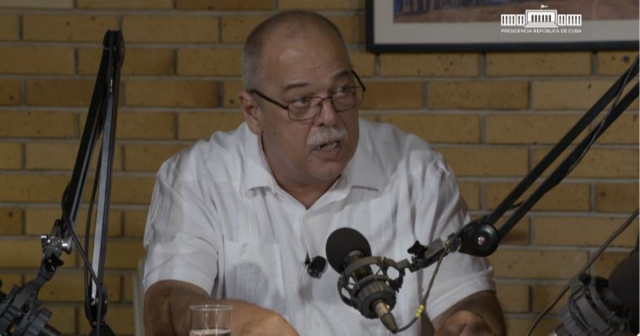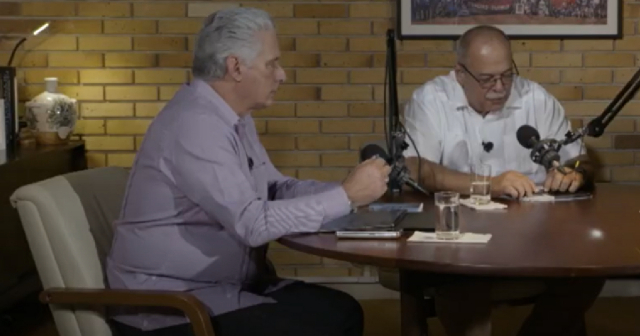Displaced to the Lidio Ramón Pérez de Felton thermoelectric power plant (CTE) in Holguín, the Minister of Energy and Mines, Vicente de la O Levy, explained to Cubans the measures taken in response to the complex and tense energy situation the country is facing.
"We are aware of the impact that is occurring daily due to the annoying power outages, which even reach 17 to 18 hours in some areas," the minister began telling Tele Cristal journalist, Yordanis Rodríguez Laurencio.
Not all Cubans experience the same number of hours of power outages, explained De la O Levy, because "circuits are rotated, maneuvered, and every time the impacts are smaller, there is more possibility of rotation and being able to distribute the impacts equitably."
The objective of the ministry is not "the equitable distribution of power outages," but "to decrease the hours of power outages," which are occurring "due to the high maintenance workload that is being carried out at this time, planned since the beginning of the year."
That planning (scheduled for 2023 according to the strategy outlined by the Cuban ruler Miguel Díaz-Canel, and unmet) causes deficits in generation ranging from 200 to 600 MW. "It is a nuisance of course, but it leads to levels of power outages that are bearable," the head of the sector considered.
The maintenance, combined with "the increase in temperatures that causes demands and consumption to skyrocket" and "issues with the logistics of fuel distribution," explain the current energy crisis, according to the leader.
Power outages have nothing to do with a fuel crisis, but with logistics. "I'm not saying that at this moment, we have a shortage of fuel, but that, when trying to supply fuel in the early morning and by road (along with the tanks that distribute the fuel by cabotage), consumption is depending more on that type of generation [distributed] than on the thermoelectric plants, and therefore they are overconsuming. And that fuel [for distributed generation] is transported by road."
In other words, it's a logistics problem, not that the Cuban regime is running out of support from its usual fuel suppliers (Venezuela, Mexico, Iran, and Russia). "What I just read is completely false, categorically that is a lie," De la O Levy recently affirmed to a pro-government journalist, denying a rumor of which he did not specify the content, but which could be related to this issue.
The minister is not here to waste time with rumors. He is on the ground, watching how the technicians are making the Felton's regenerative air heater "practically new and completely built in Cuba." "Playing it safe," according to his words.
From there, he jumped to the condenser and discovered that this section of the CTE has "22,000 tubes that need to be cleaned." De la O Levy explained to Rodríguez Laurencio how many tubes per hour, per shift, per day, and per week are involved in maintaining the Felton condenser.
The minister's management is optimal: he is there, on the front lines, counting tubes and bringing filters, parts, and cleaning machines from Havana. He is not there to waste time, he is "seeking solutions with concrete decisions and supporting the work of the electricians." Vicente de la O Levy, according to his words, is "working tirelessly."
Faced with the self-proclaimed selflessness of the minister, Rodríguez Laurencio, a new star of official journalism, saw the opportunity to ask him for his opinion on what independent media and experts publish on the internet and social networks about the critical situation of the national electric power system (SEN).
The smile appeared on the face of the sacrificed minister at such an appetizing question. The forced step to discredit independent media and Cuban civil society was taken, brightening De la O Levy's altruistic morning.
That [which they publish] is ignorance. That is not even worth reading. We read to know in which direction ignorance is heading. All of that is ignorance. But well, we read it, we laugh. We laugh too. We keep working. And we know how they are thinking. And we keep working. Convinced that we will resolve it.
What is your opinion?
COMMENTFiled under:
